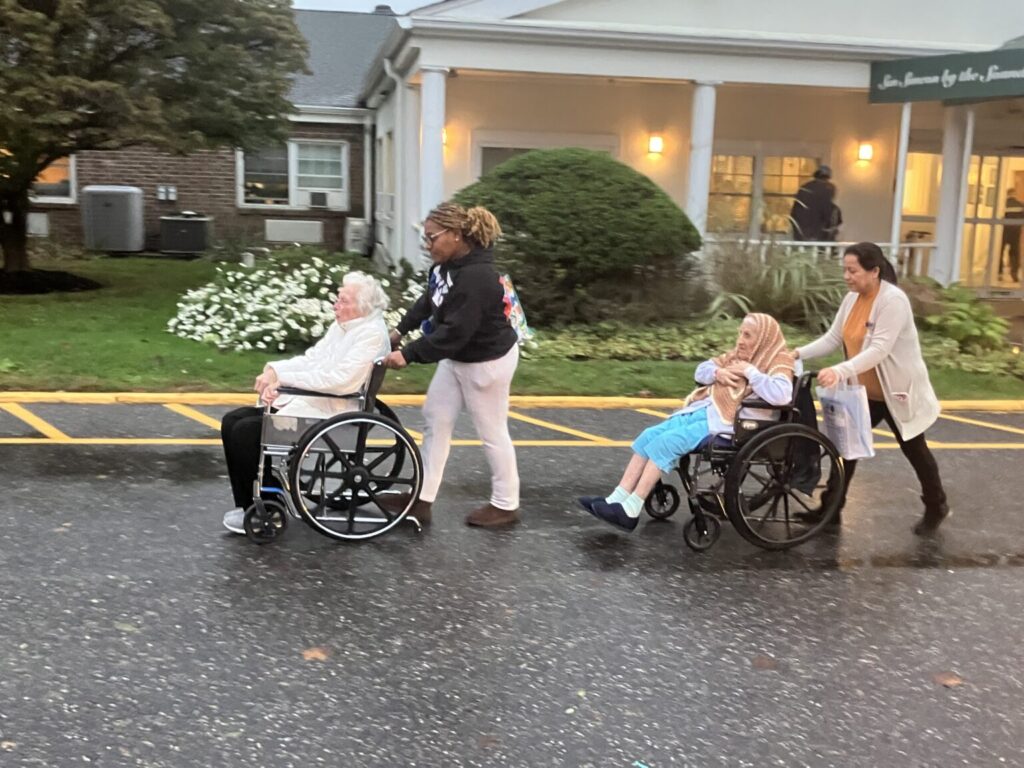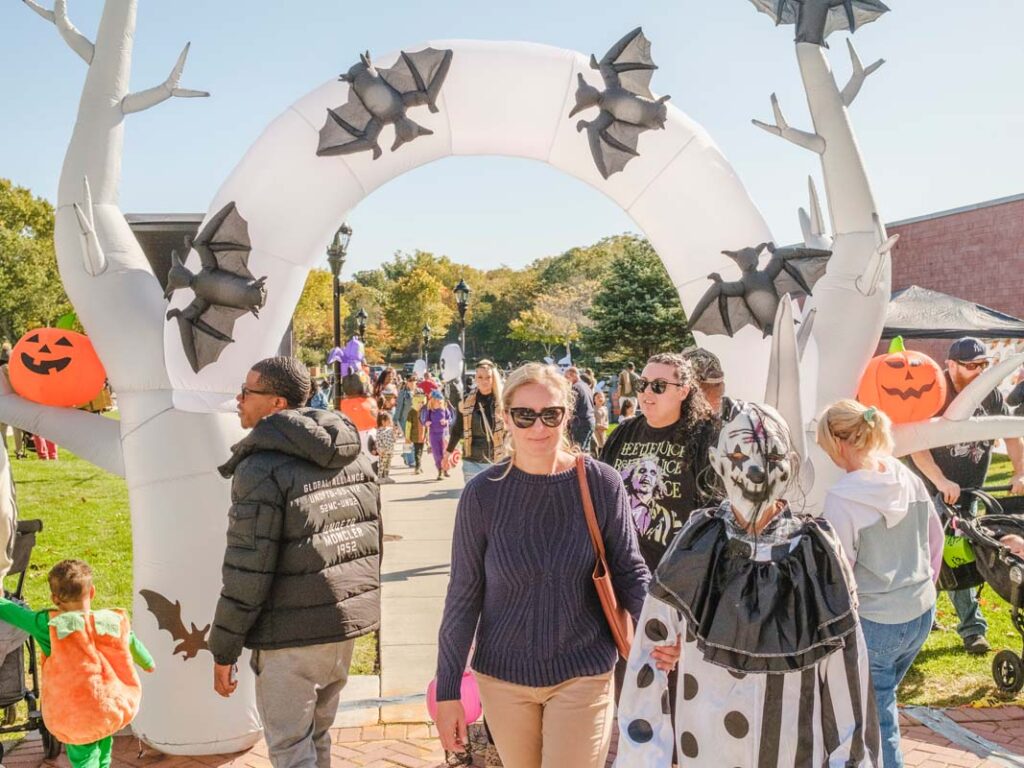Concerns raised over annual Juneteeth essay contest that asks fifth-graders to write from a slave’s perspective

In response to concerns from Pulaski Street Intermediate School parents about the appropriateness of an annual Juneteenth essay contest, Riverhead Central School District officials are considering changes to the prompt for next year’s assignment.
Celebrated every June 19, Juneteenth commemorates the emancipation of enslaved African Americans in Texas in 1865. It became a federal holiday in 2021, but Pulaski Street fifth-graders have marked Juneteenth through the essay contest for nearly two decades.
Robert ‘Bubbie’ Brown of the East End Voters Coalition helped start the tradition, developing the idea during his time at Brookhaven National Laboratory in the late 1990s, when he first learned about Juneteenth commemorations.
Each year, the students are asked to write a journal entry from the point of view of an enslaved child in 1865 who has just learned that they have been liberated.
Interim district superintendent Cheryl Pedisich confirmed in an email to the News-Review that there was “a most productive discussion” about the assignment and that the plan is to collaborate with the East End Voters Coalition on developing a new, yet-to-be-determined essay topic for the 2024-25 academic year.
Nakeea Toussaint, parent of a Pulaski Street fifth-grader, first heard about the essay from her daughter after school one day this spring.
“I said, ‘That’s not really a profound way of thinking — that you were a slave and now you’re free — how does someone think that you would feel something about that?’ ” Ms. Toussaint said, recalling their conversation. “And she said, ‘Well, mommy, one of my teachers said that maybe my slave master was good to me, and I don’t want to be free.’ Then I lost my mind.”
Ms. Toussaint said she immediately emailed her daughter’s teacher for more information about the writing contest and the teacher sent home the instructions for her to review.
Before Memorial Day, she reached out to Pulaski Street principal, Patrick Burke, with her concerns. In his response, according to Ms. Toussaint, Mr. Burke — who as of July 1 became principal of Mattituck High School — pointed to the contest’s long history and included a link to an earlier RiverheadLocal article reporting on the contest winner.
“Just because it’s been given for [many] years does not make it any less offensive or any less insensitive,” Ms. Toussaint said in her reply to Mr. Burke’s email. “It’s inappropriate to ask a 10-year-old without any context.”
She then took her concerns directly to Ms. Pedisich, who met with Ms. Toussaint, Mr. Burke and Mr. Brown after Memorial Day. She hoped the meeting would be less of a debate on the appropriateness of the assignment and more on how it could be improved.
Ms. Toussaint expressed her frustration that the assignment hadn’t been vetted by the school’s administration or Board of Education.
“I said, ‘there’s no historical context to the winning essays — if you want my child to pretend she’s a young slave, are you sharing with her that she was possibly raped? That her father was possibly hanging from a tree, lynched?’” she asked during the meeting. “Everybody was silent,” she said.
At the end of the meeting, Mr. Burke and Mr. Brown said they wanted to get input from the Pulaski fifth- grade teachers and Ms. Pedisich. Ms. Toussaint said she felt “disheartened” by this response and that the issue was being “downplayed.”
Mr. Burke referred the News-Review to the superintendent’s office in response to an initial request for comment on June 21.
Between the essay contest and some other challenges Ms. Toussaint said her children faced during their first year at Pulaski, she began looking into other education options. In her research, she came across the Riverhead Charter School and decided to email its superintendent, Raymond Ankrum, about the Juneteenth assignment.
He shared a similar perspective, she said. In an emailed statement, Mr. Ankrum said educational assignments that force “students to relive their trauma” must be put to an end, regardless of the good intentions behind them.
“While we rightly refrain from asking other groups to revisit their painful pasts, Black students are consistently asked to remember themselves as slaves,” Mr. Ankrum said in his email. “This is unacceptable — we must make amends and ensure that our education system prioritizes healing and empowerment for all.”
When Ms. Toussaint spoke to other community members about the essay, she said she noticed a pattern of parents being kept in the dark and only learning about the contest if their child happened to have mentioned it. In previous years, however, local media has reported on award ceremonies held by the school for the essay contest winners. Past News-Review reports indicate the winners also read their essays aloud at the annual Juneteenth Day celebration in Riverside.
Ms. Toussaint added the assignment is typically completed in the classroom and some teachers make it mandatory, while others make it optional.
Anne Ondricek, whose son just moved up from sixth grade at Pulaski, said she didn’t know about the assignment until Ms. Toussaint told her about it. When she asked her son if he had completed the essay last year in fifth-grade, he confirmed he worked on it in the classroom.
“He said he just wrote about fireworks and celebration. I never saw what he wrote,” Ms. Ondricek said. “It seems very strange to have people imagine to be slaves and for my son — who is white — it’s just like a game. It t didn’t seem like it could really have any meaning for him, while for Black people who imagine their ancestors being in those positions, I feel like it’s much more traumatizing and emotional.”
Kevin Johnson, parent of a recent Riverhead High School graduate, remembered when his son completed the assignment in fifth grade. Similar to many other parents’ experiences, his son brought the essay prompt home and Mr. Johnson said he was immediately alarmed.
He called the principal and the superintendent at the time, and spoke with Mr. Brown, but no changes came out of these conversations, he said. When his daughter moved up to Pulaski Street, he said he made sure she didn’t participate in the essay contest.
“To go as far as to have that grade level of children put their minds in a place where they see themselves as a slave — with really no knowledge of slavery whatsoever — just going off of what they may have heard, could be wrong,” Mr. Johnson said. “It’s pretty insulting.”
Mr. Brown said the East End Voters Coalition is almost “nonexistent” today, as the number of members has dwindled from nearly 20 to only three. Feeling he could no longer handle the contest himself, Mr. Brown expressed to Mr. Burke his desire to “ease out” of it.
The East End Voters Coalition was not involved in this year’s contest, Mr. Brown said, but Mr. Burke decided to continue it by having the teachers collect all the essays, act as the judges and select three winners.
“In the almost 20 years since we’ve been having this [contest], I haven’t had anything but positive responses from the parents, the kids and the teachers,” Mr. Brown said. “The school board even has positive comments about the contest, so we’ll see what happens.”









